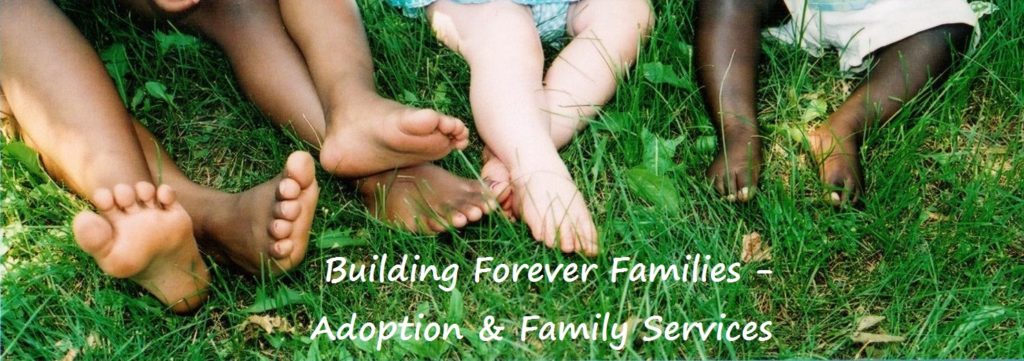Embarking on the path of adoption, birth mothers navigate a challenging journey, marked by isolation and a scarcity of resources. This section delves into prevalent and lesser-known myths about birth mothers, aiming to shed light on their experiences and the imperative need to dispel harmful misconceptions.

Debunking Common and Uncommon Myths About Birth Mothers
Myth#1: Lack of Love for the Child
The Merriam-Webster Dictionary defines love as “unselfish loyal and benevolent concern for the good of another.” Contrary to the myth that birth mothers do not love their babies, this narrative emphasizes the courage and selflessness exhibited by women from the moment they consider adoption. It highlights the profound love and concern birth mothers have for their child’s safety, well-being, and future, dispelling the notion that their choice stems from a lack of love.
Myth#2: Adoption as an “Easy Out”
Contrary to popular belief, voluntarily relinquishing a child for adoption is portrayed as one of the most challenging decisions a mother must make. This narrative rejects the myth that adoption is an “easy way out,” acknowledging the potential for trauma, depression, and lifelong grieving. It underscores the birth mother’s willingness to endure emotional pain for the betterment and safety of her unborn child.
Myth#3: Stereotypical Birth Mothers
Challenging the stereotype that birth mothers are typically teenagers, uneducated, or struggling with addiction, this narrative explores the diversity of women who choose adoption. The contemporary birth mother, as per the Evan B. Donaldson Adoption Institute, defies a one-size-fits-all description. Ranging from early 20s to various socio-economic backgrounds, she may be pursuing education, parenting other children, or facing financial hardships. This narrative emphasizes that an unintended or crisis pregnancy transcends age, occupation, or background.
Myth#4: Termination of Parental Rights Ends the Relationship
Contrary to the misconception that terminating parental rights severs the relationship between a birth mother and her child, this narrative emphasizes the enduring psychological presence. Whether through open, semi-opened, or closed adoption, the bond persists, influencing how often they interact, communicate, or exchange pictures. The narrative challenges the notion of “out of sight, out of mind,” underscoring that, for many birth moms, their child remains in their hearts and minds, especially during significant events.
Myth#5: Birth Moms Taking Back Their Child
Addressing a prevalent fear among adoptive families, this narrative dispels the myth that birth mothers can reclaim their child once the adoption is finalized. Highlighting the legal process’s irrevocability, it acknowledges specific circumstances where consent can be revoked within limited time frames. The narrative reassures adoptive families while prioritizing the best interests of the child.
Transforming Perspectives: Dismissing Harmful Myths About Birth Mothers
Despite the evolving landscape of adoption, harmful beliefs surrounding birth mothers persist, affecting the personal and often traumatizing decisions women facing unplanned or crisis pregnancies make. This narrative explores the impact of these misconceptions, acknowledging their role in perpetuating cycles of depression, guilt, shame, grief, and post-traumatic stress disorder among birth mothers.
Initiatives to Break the Stigma
While adoption professionals strive to understand the emotional depth of a birth mother’s loss, these women remain among the least supported and most stigmatized. The National Adoption Attitudes Survey reveals a significant adoption presence in U.S. families, yet the women central to these life-changing decisions receive minimal representation in media. This narrative calls for a shift in conversations, recognizing that statistics alone cannot dispel myths. It advocates for changing narratives and fostering open discussions.
Sharing a Unique Birth Mother Story
The narrative takes a personal turn as a birth mother shares her unique story from the late 1980s when adoptions were shrouded in secrecy. It highlights the shift towards semi-open adoptions, allowing birth mothers to choose the adopting family. The author reflects on her emotional journey, grappling with guilt and shame, and recounts the transformative experience of sharing her story at an adoption workshop. This personal narrative underscores the power of empathy and openness in dispelling shame and fostering healing.
The author invites readers to join the conversation, encouraging them to share their adoption stories to contribute to dispelling myths and creating a more accurate view of birth mothers. Acknowledging the potential fear or overwhelm associated with going public, the narrative suggests seeking safe spaces like trusted friends, support groups, or therapy for those who might find solace in sharing their experiences.
Empowering Others to Share
As myths and stereotypes about birth mothers persist, it emphasizes the need to change conversations, challenge harmful beliefs, and pave the way for a more open and accepting society. In an age of information accessibility, the narrative encourages leveraging platforms like social media to shift towards greater understanding and acceptance, exemplified by the rising hashtag #birthmomstrong.
To actively contribute to this transformative journey, consider joining hands with Forever Families. Our commitment extends beyond dispelling myths; we offer comprehensive support for birth mothers throughout their adoption process. From counseling services to invaluable assistance, our mission is to create an environment of understanding and empathy. Together, let’s foster lasting connections, challenge misconceptions, and contribute to a society that embraces diverse narratives

